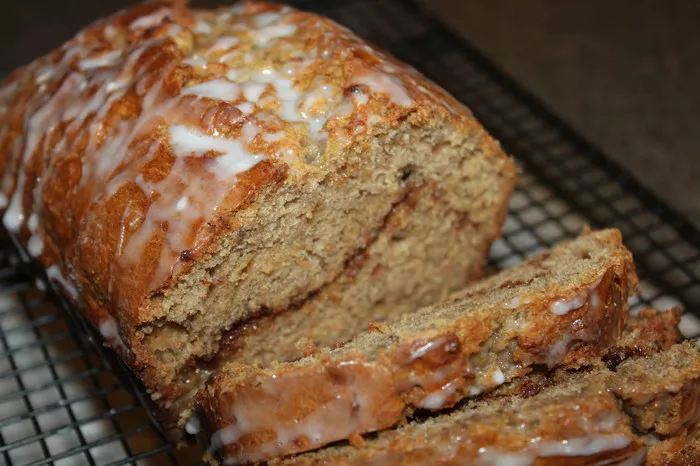Breadsmith is a renowned artisan bakery chain that specializes in handcrafted bread made from high-quality ingredients. Established in 1993 by Dan Sterling in Milwaukee, Wisconsin, Breadsmith has since expanded across the United States, offering a wide variety of bread and baked goods, each made with traditional techniques and recipes.
The brand prides itself on its commitment to excellence, using only natural ingredients, without any additives or preservatives. With a focus on quality, freshness, and authenticity, Breadsmith has garnered a loyal customer base and a strong reputation for its artisanal products.
Breadsmith Franchise Initial Investment
Investing in a Breadsmith franchise offers entrepreneurs the opportunity to enter the thriving bakery market with a well-established brand and proven business model. However, it’s crucial to understand the initial investment required to become a franchisee.
The initial investment for a Breadsmith franchise typically ranges from $300,000 to $500,000, depending on various factors such as location, size of the bakery, and equipment needs. This investment covers expenses such as franchise fees, leasehold improvements, equipment purchases, initial inventory, and working capital.
Franchise fees for Breadsmith typically range from $35,000 to $50,000, granting franchisees the right to use the brand name, trademarks, and business system. Additionally, franchisees are responsible for securing a suitable location for their bakery, which may involve leasing or purchasing commercial real estate.
Leasehold improvements, including renovations and upgrades to the bakery space, can vary significantly depending on the condition of the premises and local construction costs. Equipment costs for ovens, mixers, refrigeration units, and other bakery essentials can also constitute a substantial portion of the initial investment.
Breadsmith Franchise Ongoing Expenses
In addition to the initial investment, franchisees must also consider ongoing expenses associated with operating a Breadsmith bakery. These expenses include:
1. Royalty Fees: Franchisees typically pay a monthly royalty fee to Breadsmith, which is calculated as a percentage of gross sales. This fee contributes to ongoing support and resources provided by the franchisor, including marketing, training, and operational assistance.
2. Inventory Costs: Maintaining sufficient inventory of ingredients and baked goods is essential for ensuring product availability and customer satisfaction. Franchisees must budget for ongoing inventory costs, which can fluctuate based on factors such as seasonal demand and supplier pricing.
3. Labor Expenses: Hiring and retaining qualified staff to handle baking, customer service, and administrative duties is critical for the success of a Breadsmith bakery. Labor expenses include wages, benefits, payroll taxes, and training costs.
4. Utilities and Rent: Operating a bakery requires utilities such as electricity, water, and gas, as well as rent or lease payments for the bakery premises. These expenses can vary depending on factors such as location, size of the bakery, and local utility rates.
5. Marketing and Advertising: Franchisees are responsible for implementing local marketing and advertising initiatives to promote their bakery and attract customers. While Breadsmith provides support at the corporate level, franchisees may incur additional expenses for local advertising campaigns, signage, and promotions.
6. Insurance and Licenses: Franchisees must maintain various insurance policies, including property insurance, liability insurance, and workers’ compensation coverage. Additionally, they must ensure compliance with local health and safety regulations and obtain necessary licenses and permits for operating a bakery business.
Breadsmith Franchise Financial Projections and ROI
Before investing in a Breadsmith franchise, prospective franchisees should conduct thorough financial projections to assess the potential return on investment (ROI). While individual results may vary based on factors such as location, market conditions, and management capabilities, the following financial projections can provide insight into the expected performance of a Breadsmith bakery:
1. Revenue Forecast: Revenue projections should estimate the expected sales volume based on factors such as foot traffic, customer demographics, and product offerings. Franchisees can use historical sales data from existing Breadsmith locations as a benchmark for their projections.
2. Cost of Goods Sold (COGS): COGS projections should account for the cost of ingredients, packaging materials, and other direct expenses associated with producing baked goods. Franchisees can use industry benchmarks and supplier quotes to estimate COGS.
3. Gross Margin Analysis: Gross margin analysis helps franchisees understand the profitability of their bakery operations by comparing gross profit (revenue minus COGS) to total sales. Maintaining healthy gross margins is essential for covering operating expenses and generating profit.
4. Operating Expenses: Operating expense projections should include all ongoing expenses outlined earlier, such as royalty fees, inventory costs, labor expenses, utilities, rent, marketing, insurance, and licenses. Franchisees should allocate sufficient funds to cover these expenses while maintaining profitability.
5. Net Profit Forecast: Net profit forecasts represent the bottom line of the financial projections and indicate the expected profit after accounting for all expenses. Franchisees should aim to achieve a sustainable level of net profit that provides a satisfactory return on their investment.
Conclusion
Investing in a Breadsmith franchise offers entrepreneurs the opportunity to join a reputable brand in the thriving bakery industry. However, prospective franchisees must carefully consider the initial investment, ongoing expenses, and financial projections to assess the feasibility and potential return on investment of a Breadsmith bakery.
By conducting thorough due diligence, seeking guidance from experienced franchise advisors, and leveraging the support and resources provided by Breadsmith corporate, franchisees can position themselves for success in the competitive bakery market. With dedication, hard work, and a commitment to quality and customer satisfaction, a Breadsmith franchise can be a rewarding and lucrative business venture.

